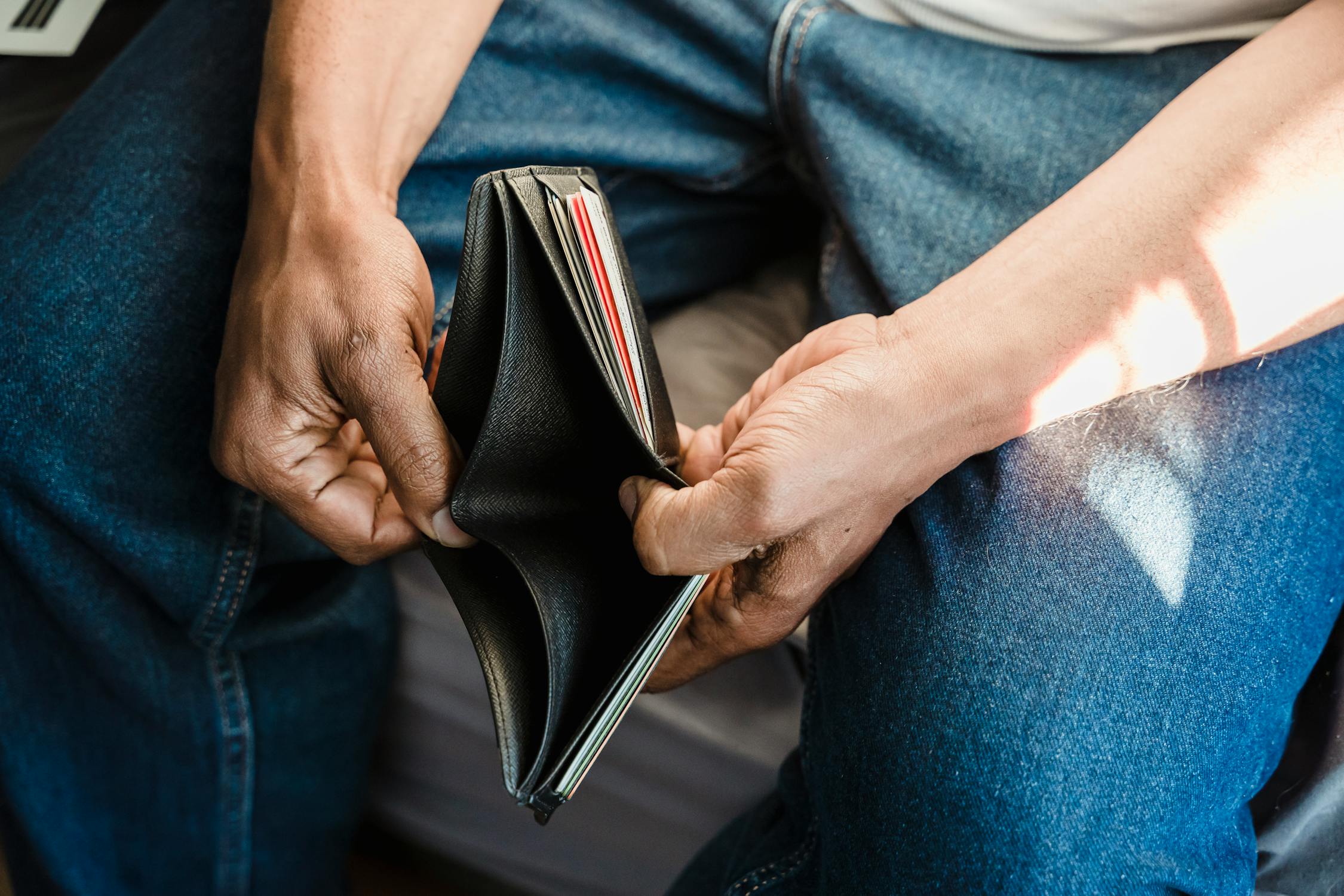Divorce can affect both one’s emotions and finances in many ways. After a divorce, it is common for couples to worry about child custody, the division of property and alimony. However, one critical issue often gets overlooked: joint debt after divorce. When a relationship comes to an end, the two are still legally bound by jointly held debt.
If you or your partner are divorcing or considering it, be sure you manage shared debts correctly. In this article, we’ll guide you through the essential steps to manage and resolve joint debt after divorce. Here are some tips on protecting your long-term finances during this change.
Understanding Joint Debt After Divorce
First, you must learn what joint debt involves before addressing any strategies. Any debt that both people had during their marriage is known as joint debt after divorce.
Typical examples of these situations are:
- Having the same credit card with your partner
- Loans that include a co-signer
- Both names on a mortgage
- Multiple personal loans taken together
Even though divorce courts may determine who is responsible for the debt, creditors disregard it. If you do not pay off or refinance the debt, it will still show on each person’s credit report for as long as it remains unpaid.
So, what can you do to tackle this situation? We’ll look at how to do it, one step at a time, just as you would when going through a divorce consultation checklist.
Step 1: Gather a Complete List of All Joint Debts
You should first make sure that the information you gather is accurate. Be sure to include all your shared debts on the list. Start by:
- Checking for recent credit reports from the top three credit bureaus
- Obtaining statements from each person’s credit card and loan accounts
- Determining if there are any unwritten debts or people you share finances with
This information will let you see the financial obligations for each partner and the payees. Ignoring a debt in its early stages can cause serious issues later.
Step 2: Determine Who Is Legally Responsible?
The next step is to review the names shown on the account(s). If two names appear, each person involved holds legal responsibility. It does not matter which person made the purchases or spent the money; the rule still applies.
Something else to consider is that, in community property states, both spouses are on the hook for debts from the marriage, even if only one person signed up for the account.
For this reason, seek advice from a divorce lawyer or a financial expert in your state. Knowing the legal standing of each debt will shape your approach to managing joint debt after divorce.
Step 3: Negotiate Debt Division in the Divorce Settlement
When you determine your debts, the following step is making an agreement on how they will be divided during the divorce. Courts divide married people’s assets and debts in a way they consider fair, which doesn’t always mean an equal split.
Here are a few options for how courts manage joint debt:
- A spouse might take over a debt to protect more marital assets.
- It is possible for each person to be responsible for half the debt regardless of wage differences.
- With greater finances, the higher earner can usually take on more debt.
At this point, you should be consulting your divorce attorney regularly. Make sure your divorce agreement clearly outlines who is responsible for each joint debt after divorce. Such documentation could help you if your ex-spouse fails to meet their responsibilities.
Step 4: Remove Your Name From Joint Accounts (If Possible)
Even if the divorce court orders your ex to handle a debt, the lender may still seek payment from you. A divorce decree is not what lenders base their decisions on; they rely on the actual contract.
Here is what you can do:
- Close or freeze any credit card accounts you have together to ensure there are no additional charges
- Refinance the loans so that only one person is responsible.
- You can pay off the debt by selling property that is owned jointly, be it a car or home
- Try to ask for a release of liability from the lender, but not all will agree.
Taking these steps can help you avoid credit damage caused by missed payments on joint debt after divorce.
Step 5: Protect Your Credit Score
Who is required to pay according to the divorce decree does not matter to your credit report. If your ex has missed making a repayment on a debt you share, your credit will also suffer the consequences. For this reason, You should always be attentive.
Here are some ways to protect your credit score:
- Check your credit reports often
- Make sure you receive alerts whenever there are changes in your joint accounts.
- You can also sign up for a credit monitoring service.
- Contact your creditors if you realize you missed a payment.
Also, keep track of every communication and payment you make. If necessary, these documents can help in any legal processes that may arise.

Image Source: https://www.pexels.com/photo
Step 6: Create a Post-Divorce Budget
Sharing responsibilities for joint debts after divorce are just a part of the whole picture . Create a proper financial plan after your divorce.
Make the first step by making a budget that accurately reflects your expenses.
- Moving and setting up a new house.
- Payments that cover child support or alimony
- Everyday expenses
- The need to repay your debt
Following this budget should allow you to spend less and keep debt at a minimum. In case you feel too stressful about finances, a financial counselor or planner might be able to help.
Step 7: Consider Debt Consolidation or Bankruptcy (As a Last Resort)
Sometimes, after divorce, the debt shared by ex-partners becomes too difficult to handle. When neither spouse is able to pay, it could be wise to choose an alternative solution.
Debt consolidation allows you to bundle all your debts together and get a lower interest rate. It makes sending money much simpler and could help save on monthly bills.
Bankruptcy ought to be used as the last possible solution. Filing for bankruptcy relieves some obligations, but your credit score will decline and you might still owe money on (secured) loans you took together with someone else.
Don’t make this decision before you speak with a financial expert or a bankruptcy attorney.

Image Source: https://pixabay.com/photos
Step 8: Communicate Openly and Set Clear Boundaries
Managing your joint debt after divorce can be easier if you can effectively communicate with your ex-spouse. By being calm and polite, you can hope to avoid having problems later on.
You can achieve better communication through:
- Limit your conversations to financial topics.
- Avoid making oral promises and choose to put your agreements in writing.
- Set boundaries and firmly enforce them.
In case you cannot talk directly, you may need to involve a mediator or divorce coach during negotiations.
Step 9: Plan for the Long-Term
As soon as you’re done handling joint debt after divorce, you can prepare for your future. It takes time to recover financially, though being consistent will help you build your life back up.
Focus on:
- Restoring your credit score
- Set aside some money for any unexpected trouble.
- Set aside some money for any unexpected trouble.
Controlling your financial situation today benefits your future.
FAQs About Joint Debt After Divorce
- Will I be obligated to cover joint debt after my ex-partner defaults?
Yes. Even if you are not listed as responsible in the divorce, your name being on the account means the creditors can come after you. - Should I end both of our joint bank accounts once the divorce begins?
If it is possible, then yes. You won’t have any further legal issues and your credit will remain secure. - What do we do with our mortgage after going through a divorce?
A homeowner might refinance alone, sell the home or keep the house with their former spouse—which approach is most suitable largely depends on what advantages or disadvantages are important. - Is it possible to settle debts without a court proceeding?
Yes, as long as the terms are outlined in a document signed by both parties. Still, having the court give its agreement makes the settlement enforceable.
Final Thoughts: Taking Control of Joint Debt After Divorce
Joint debt after divorce can seem challenging to deal with; however, it is manageable when you have the right strategy. First, learn about your responsibilities and then take measures to keep your credit and finances secure.
These are a few things to remember:
- Record every agreement and payment.
- Wherever possible, remove your name from any joint accounts.
- Check your credit often.
- Plan your finances after the divorce is over.
- Ask a professional if you are unsure about something.

Image Source: https://pixabay.com/photos
A divorce doesn’t mean you have to suffer financially. If you settle your shared debt in a clear manner following the divorce, you can feel secure and confident about the future.
Now is the time to take steps to manage your finances well. Free yourself from being tied to your debts of the past and start a new life with some effort. Looking for more guidance on life after divorce? Browse more helpful divorce resources at smartdivorcenetwork.com/. You can also follow us on Facebook.

Smart Divorce Network is a blogger-based community that gives divorce professionals a unique platform to share insights and knowledge. Smart Divorce Network is the leading destination for smart divorce discussions between peers. You can share your thought and/or your articles here.





